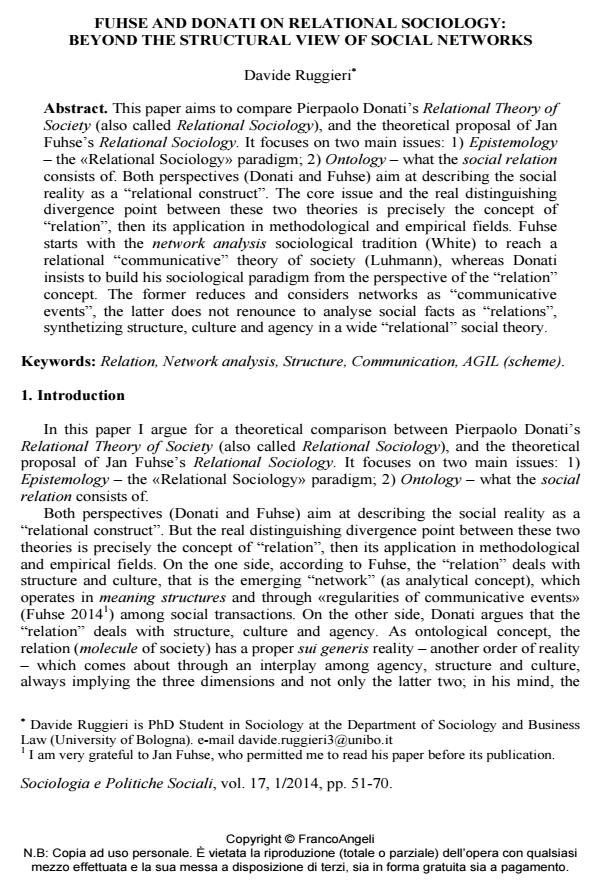Fuhse and donati on relational sociology: beyond the structural view of social networks
Titolo Rivista SOCIOLOGIA E POLITICHE SOCIALI
Autori/Curatori Davide Ruggieri
Anno di pubblicazione 2014 Fascicolo 2014/1
Lingua Inglese Numero pagine 20 P. 51-70 Dimensione file 149 KB
DOI 10.3280/SP2014-001004
Il DOI è il codice a barre della proprietà intellettuale: per saperne di più
clicca qui
Qui sotto puoi vedere in anteprima la prima pagina di questo articolo.
Se questo articolo ti interessa, lo puoi acquistare (e scaricare in formato pdf) seguendo le facili indicazioni per acquistare il download credit. Acquista Download Credits per scaricare questo Articolo in formato PDF

FrancoAngeli è membro della Publishers International Linking Association, Inc (PILA)associazione indipendente e non profit per facilitare (attraverso i servizi tecnologici implementati da CrossRef.org) l’accesso degli studiosi ai contenuti digitali nelle pubblicazioni professionali e scientifiche
This paper aims to compare Pierpaolo Donati’s Relational Theory of Society (also called Relational Sociology), and the theoretical proposal of Jan Fuhse’s Relational Sociology. It focuses on two main issues: 1) Epistemology - the «Relational Sociology» paradigm; 2) Ontology - what the social relation consists of. Both perspectives (Donati and Fuhse) aim at describing the social reality as a "relational construct". The core issue and the real distinguishing divergence point between these two theories is precisely the concept of "relation", then its application in methodological and empirical fields. Fuhse starts with the network analysis sociological tradition (White) to reach a relational "communicative" theory of society (Luhmann), whereas Donati insists to build his sociological paradigm from the perspective of the "relation" concept. The former reduces and considers networks as "communicative events", the latter does not renounce to analyse social facts as "relations", synthetizing structure, culture and agency in a wide "relational" social theory.
Parole chiave:Relation, Network analysis, Structure, Communication, AGIL (scheme).
Davide Ruggieri, Fuhse and donati on relational sociology: beyond the structural view of social networks in "SOCIOLOGIA E POLITICHE SOCIALI" 1/2014, pp 51-70, DOI: 10.3280/SP2014-001004